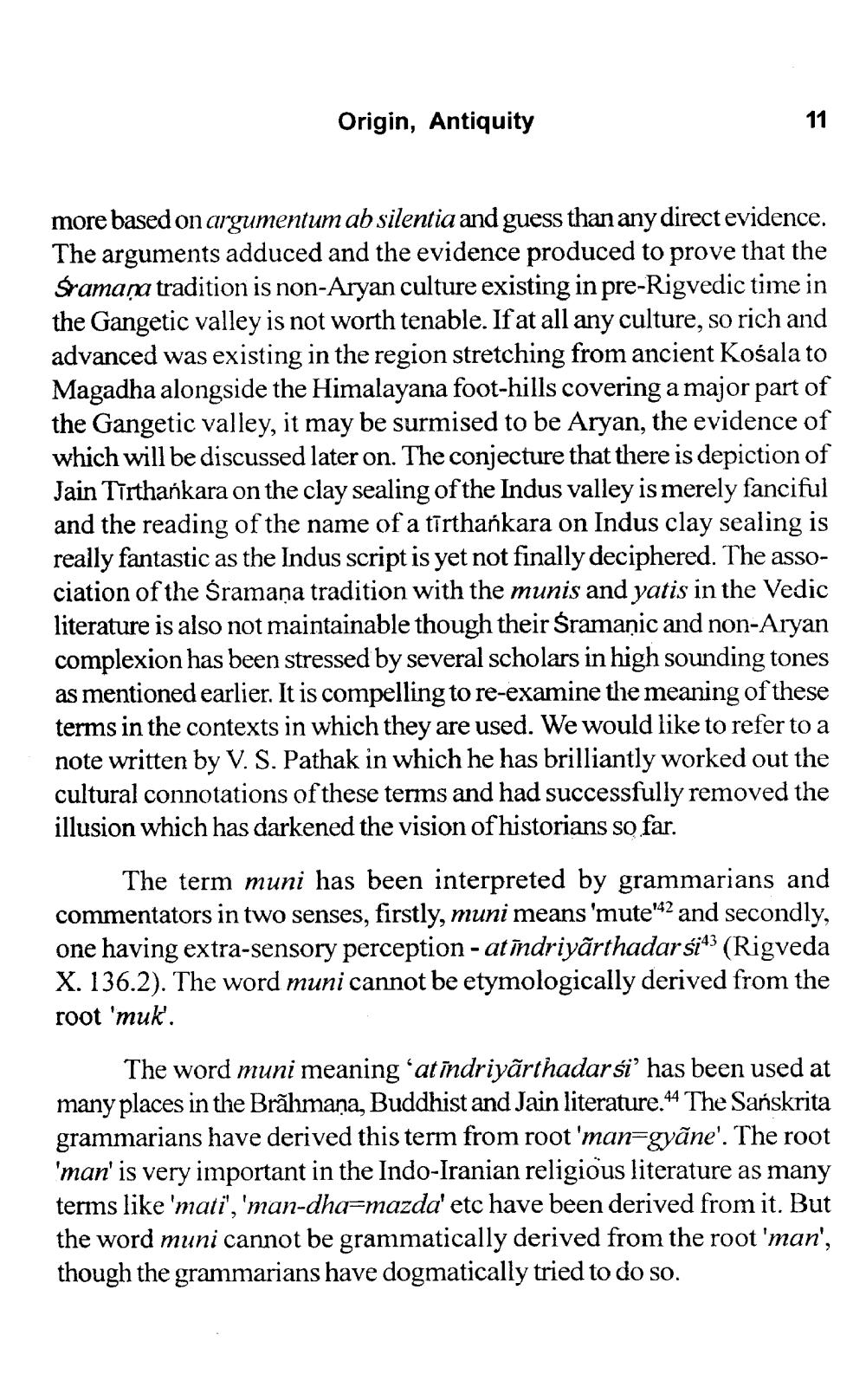________________
Origin, Antiquity
more based on argumentum ab silentia and guess than any direct evidence. The arguments adduced and the evidence produced to prove that the Śramana tradition is non-Aryan culture existing in pre-Rigvedic time in the Gangetic valley is not worth tenable. If at all any culture, so rich and advanced was existing in the region stretching from ancient Kośala to Magadha alongside the Himalayana foot-hills covering a major part of the Gangetic valley, it may be surmised to be Aryan, the evidence of which will be discussed later on. The conjecture that there is depiction of Jain Tīrthankara on the clay sealing of the Indus valley is merely fanciful and the reading of the name of a tīrthankara on Indus clay sealing is really fantastic as the Indus script is yet not finally deciphered. The association of the Śramaņa tradition with the munis and yatis in the Vedic literature is also not maintainable though their Śramanic and non-Aryan complexion has been stressed by several scholars in high sounding tones as mentioned earlier. It is compelling to re-examine the meaning of these terms in the contexts in which they are used. We would like to refer to a note written by V. S. Pathak in which he has brilliantly worked out the cultural connotations of these terms and had successfully removed the illusion which has darkened the vision of historians so far.
The term muni has been interpreted by grammarians and commentators in two senses, firstly, muni means 'mute'42 and secondly, one having extra-sensory perception - at indriyãrthadar și43 (Rigveda X. 136.2). The word muni cannot be etymologically derived from the root 'muk'.
The word muni meaning ‘at indriyârthadar si has been used at many places in the Brāhmaṇa, Buddhist and Jain literature. 44 The Sanskrita grammarians have derived this term from root 'man=gyãne'. The root 'man' is very important in the Indo-Iranian religious literature as many terms like 'mati', 'man-dha-mazda' etc have been derived from it. But the word muni cannot be grammatically derived from the root 'man', though the grammarians have dogmatically tried to do so.




